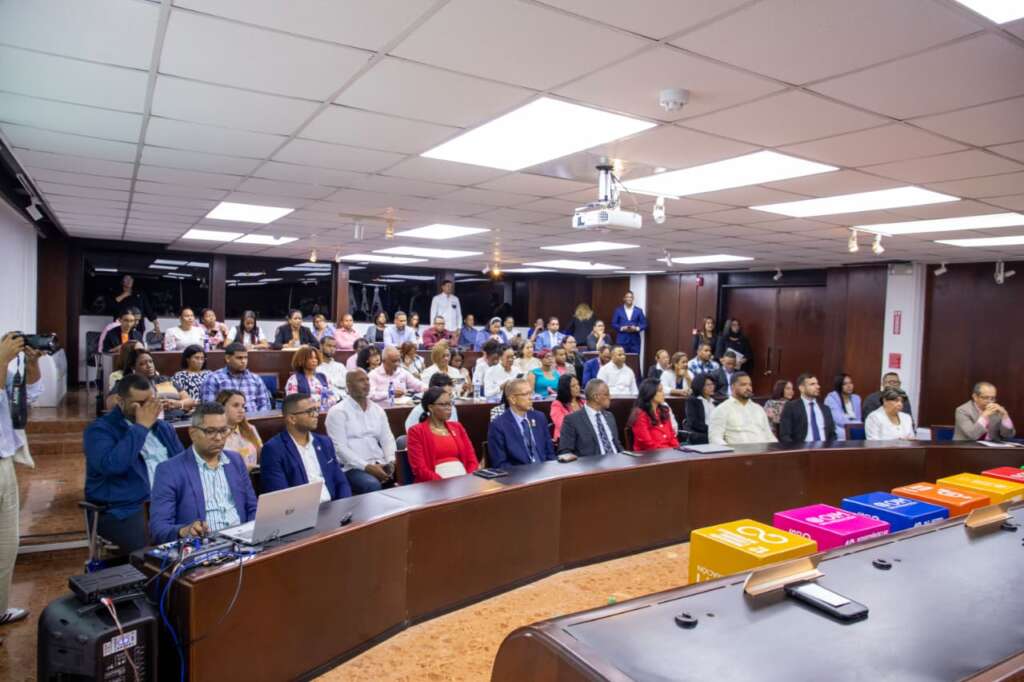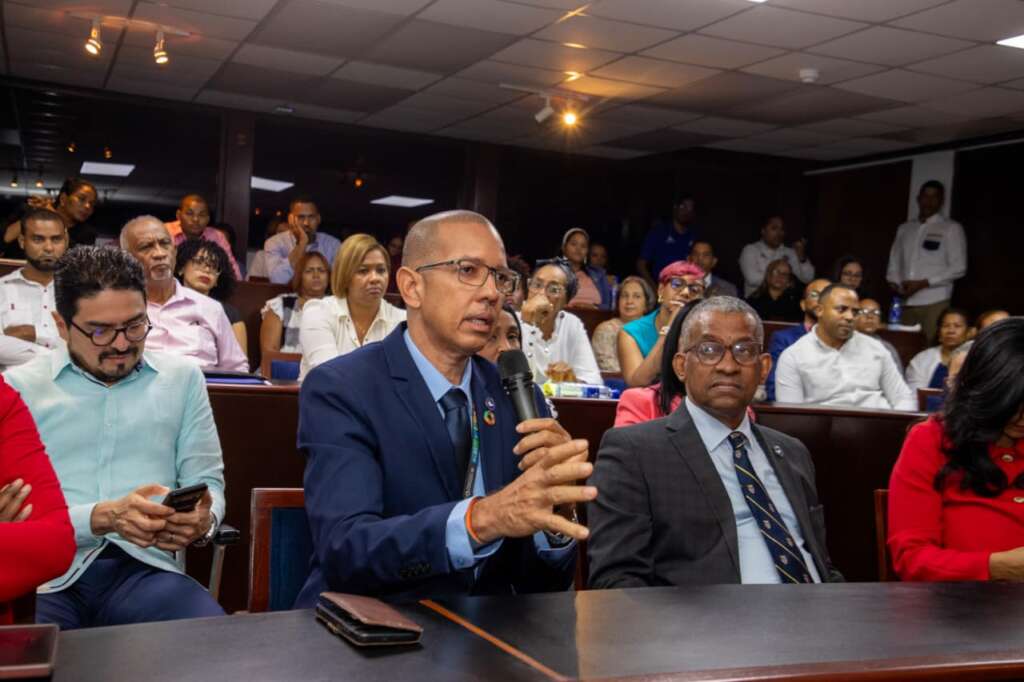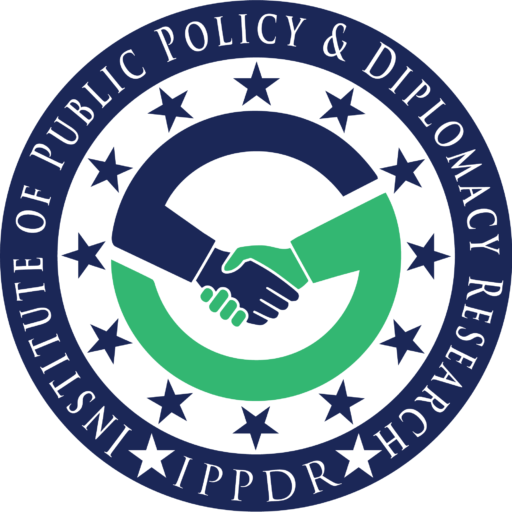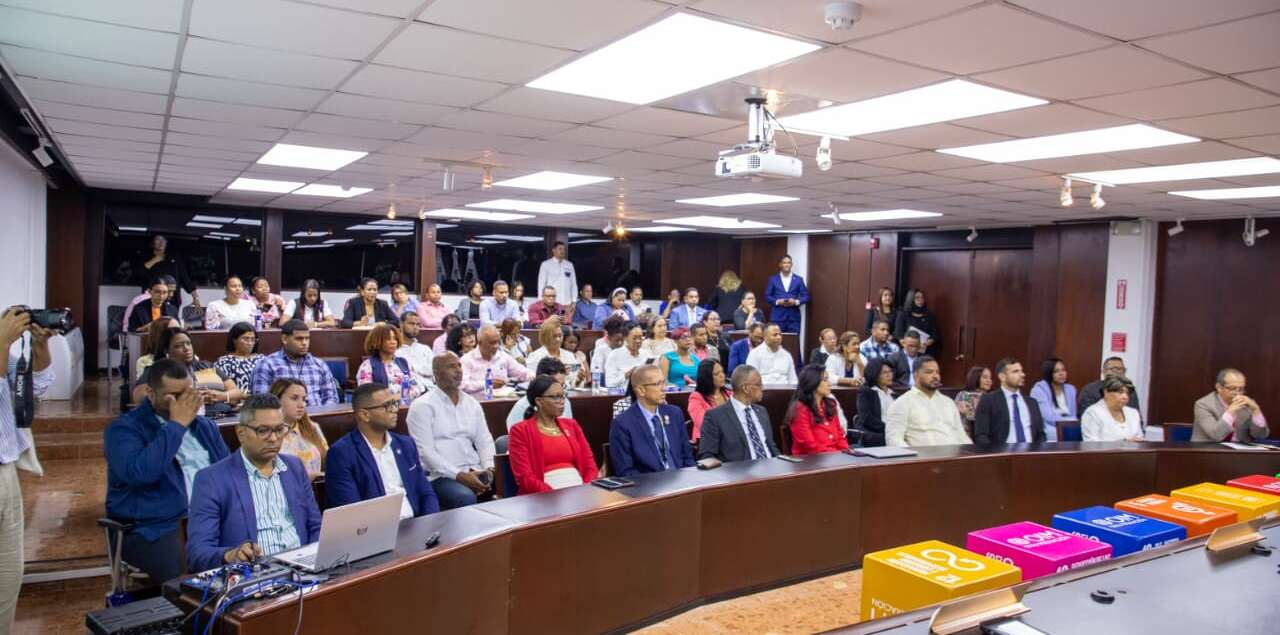Dominican Republic launches ‘Vaping Is Not a Game’ campaign to protect youth
The Institute of Public Policy and Diplomacy Research (IPPDR) proudly witnessed a historic milestone in the Dominican Republic with the official launch of the national campaign “Vapear No es un Juego” (Vaping is Not a Game), a decisive step in advancing public health awareness and youth protection.
This initiative, carried out under the leadership of President Alejandro Abreu of the Consejo Nacional de Drogas (CND), in coordination with the Instituto Dominicano de Evaluación e Investigación de la Calidad Educativa (IDEICE) of the Ministry of Education (MINERD), sends a clear message: the health of young people cannot remain at risk from the silent but growing threat of vaping.

This campaign does not only concern today’s youth; it speaks about the survival and well-being of future generations. By mobilizing educators, parents, health officials, and civil society, the Dominican Republic has taken its place among nations prioritizing public health as a pillar of sustainable development and human security.
Why this Campaign Matters
In recent years, vaping has emerged globally as a seductive alternative to traditional smoking, marketed with flavors, sleek designs, and the false promise of safety. Young people, often unaware of the dangers, adopt the habit without realizing the long-term consequences.
Scientific evidence highlights the risks:
• Exposure to nicotine addiction, which can impair adolescent brain development.
• Increased vulnerability to respiratory diseases and weakened immune systems.
• Gateway effects lead to the consumption of other harmful substances.
For a country like the Dominican Republic, with its youthful demographic and dynamic energy, the risks carry national implications. If the new generation suffers from chronic illnesses linked to vaping, the health system, economy, and national security will face long-term strain.

By launching “Vapear No es un Juego”, the Dominican Republic acknowledges that public health is not a peripheral issue but a central pillar of peace, prosperity, and sustainable development.
The Role of Leadership and Institutions
President Alejandro Abreu of the Consejo Nacional de Drogas emphasized that prevention remains the most powerful tool against the challenges of addiction. Additionally, in his remarks, he underscored that no policy could succeed without strong inter-institutional collaboration.
For this reason, the alliance between CND, IDEICE, and MINERD reflects a model of inclusive governance, government agencies joining forces with educators and researchers to create a shield for the nation’s youth.
The participation of IDEICE is especially critical. By combining scientific evaluation with educational policy, the Dominican Republic can ensure that the campaign is not just rhetorical but evidence-based, measurable, and adaptable. MINERD’s involvement guarantees that prevention and awareness reach classrooms, where the battle for healthy habits truly begins.
A Public Health Diplomacy Perspective
The Dominican Republic’s initiative also contributes to global public health diplomacy. Around the world, vaping products circulate with little regulation, often targeting youth through social media campaigns and attractive branding.
When a country like the Dominican Republic stands up and says “enough,” it sends a signal not only domestically but internationally.
The campaign aligns with several United Nations Sustainable Development Goals (SDGs):
• SDG 3 – Good Health and Well-being: Preventing addiction and promoting healthier lifestyles.
• SDG 4 – Quality Education: Equipping students with knowledge and resilience to resist harmful habits.
• SDG 10 – Reduced Inequalities: Ensuring that vulnerable communities, often most exposed to predatory marketing, receive protection and awareness.
• SDG 16 – Peace, Justice, and Strong Institutions: Building institutions capable of defending the dignity and health of citizens.
In this way, the Dominican Republic demonstrates that diplomacy is not limited to embassies and treaties. It extends into classrooms, neighborhoods, and public health campaigns that safeguard humanity’s most precious asset: youth.
Protecting the Present and Future Generations
The phrase “Vapear No es un Juego” carries profound meaning. It recognizes that vaping is not a harmless pastime but a threat capable of eroding the potential of an entire generation.
Protecting today’s youth means protecting tomorrow’s workforce, leaders, and innovators. If the Dominican Republic succeeds in reducing vaping rates among adolescents, it will ensure that future generations inherit not only healthier bodies but also stronger communities, more resilient institutions, and greater capacity to meet global challenges.
This campaign represents an act of patriotism and foresight. By linking health to national development, the Dominican Republic sets an example that other nations in the Caribbean and Latin America can emulate.
The Role of Education and Awareness
At the heart of this campaign lies education. MINERD’s involvement reflects the recognition that prevention must begin in schools, where young minds can develop critical thinking and resilience. Awareness campaigns in classrooms, peer-to-peer discussions, and training for teachers ensure that young people not only learn about the dangers of vaping but also feel empowered to say no.
Moreover, the involvement of IDEICE allows the government to measure the effectiveness of the campaign. Data collection, impact studies, and ongoing evaluation will ensure that the initiative evolves in step with changing behaviors and emerging threats.
A Call to Society
No campaign can succeed without the active participation of society. Parents, religious institutions, community leaders, and the private sector must join forces to strengthen the message. Advertising companies must act responsibly, and retailers must comply with regulations to prevent minors from accessing vaping products.
The Dominican Republic can build a national movement for youth health, one that extends beyond the government to include every sector of society. This collective responsibility embodies the spirit of diplomacy at the national level, building coalitions and partnerships to achieve peace, security, and well-being.
The launch of “Vapear No es un Juego” represents more than a health campaign. It embodies a declaration that the Dominican Republic will not allow harmful industries to jeopardize the future of its youth. Under the leadership of Alejandro Abreu, in coordination with IDEICE and MINERD, the country has positioned itself as a defender of health, dignity, and education.
The campaign reflects IPPDR’s broader philosophy: “We do not observe change; we design it.” By standing with the Dominican Republic, IPPDR acknowledges that the battle against vaping is not a local issue but a global one; requiring diplomacy, collaboration, and vision.
Protecting youth from the dangers of vaping ensures not only healthier bodies but also stronger nations. As the Dominican Republic leads this effort, the message resonates across borders: safeguarding youth health is safeguarding peace, security, and sustainable development for generations to come.

